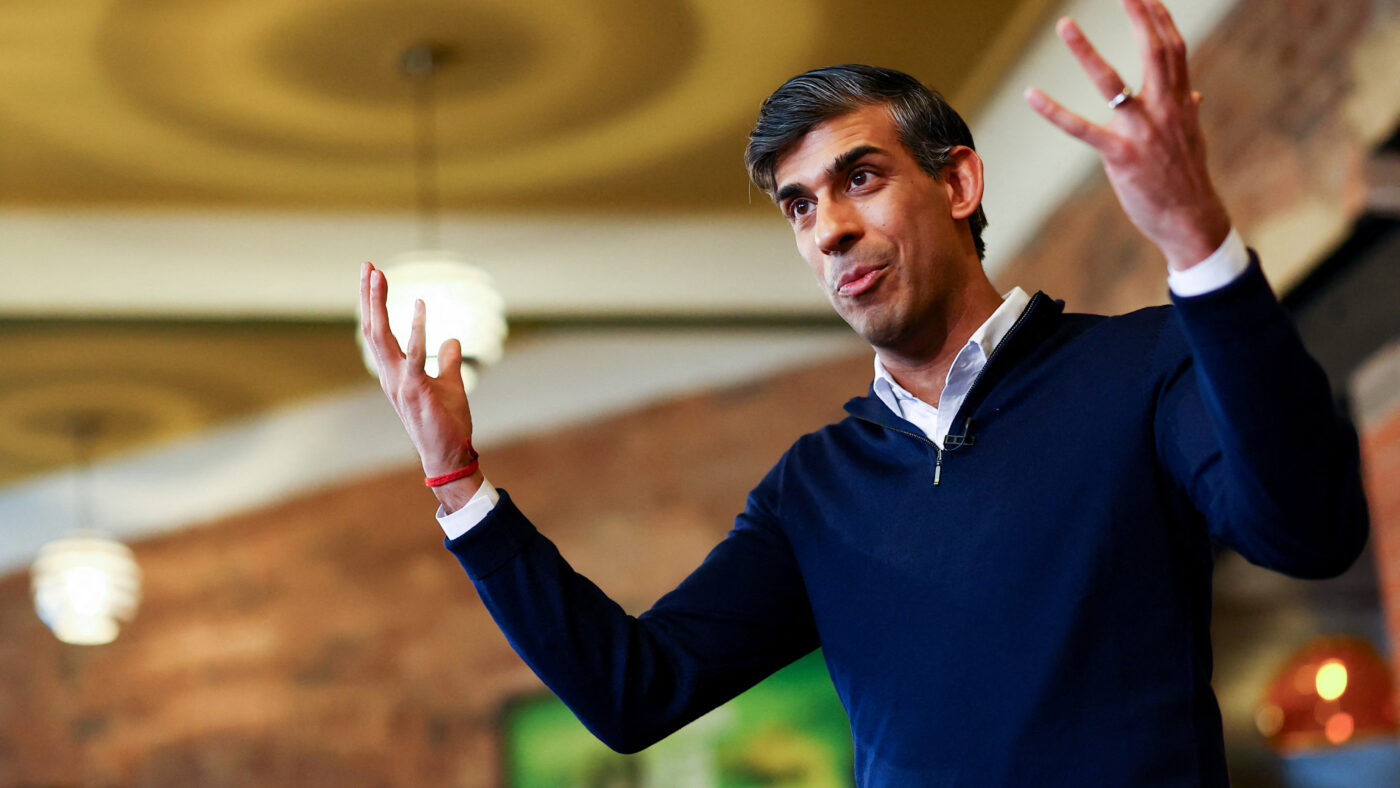It’s amusing to think about how Churchill might have responded to the news that the Conservative Party were intending to ban tobacco products for future generations.
‘I shall fight them on the beaches, I shall fight them in the smoking lounges,’ ChatGPT informs me of his response. ‘I shall fight them in the gentlemen’s clubs, and I shall never surrender my right to a damn fine cigar!’ Perhaps AI is not about to take over.
Today, Parliament is voting on the Tobacco and Vapes Bill, which would ban the sale of tobacco products to people born after January 1 2009. The ban would not only cover cigarettes and cigars, but also heat-not-burn products, which, given the absence of combustion, are safer than traditional cigarettes. The prohibition also includes shisha, stamping out centuries-old traditions.
Aside from it being fundamentally illiberal, there are many reasons why this is simply bad policy.
The overwhelming evidence suggests prohibition fuels criminal activity. Stamping out a legal tobacco market will fuel a lucrative black market. Illicit traders already have a market in the UK due to our extortionately high taxes: HMRC estimates that one in nine manufactured cigarettes and one in three hand-rolled cigarettes were bought illegally in 2021-22. According to the 2023 Nanny State Index, the UK is currently the worst European country to smoke in. Our present eye-watering prices have already turned many smokers to the black market, but what would happen if tobacco were banned altogether?
We don’t have to imagine this problem, because there are international examples that demonstrate the failure of prohibition. Bhutan introduced a ban on the sale of tobacco in 2004, which an academic study found led to a ‘thriving black market’. Smoking among minors remained not only common but actually went up: according to the World Health Organization, among 13- to 15-year-olds, the ‘prevalence of current cigarette smoking increased continuously from 2009 and 2019’. Bhutan ended up lifting the ban in 2021.
In South Africa, tobacco sales were banned during the pandemic, resulting in an increase in demand for illicit cigarettes that fuelled wider criminal behaviour. A University of Cape Town study found that an estimated 93% of consumers were driven to buy cigarettes illegally following the introduction of the ban. Prohibition was ‘largely unsuccessful in preventing smokers from purchasing cigarettes on the illicit market’.
In theory, under the legislation proposed in its current form, it will take until the last person born before December 31 2008 dies to be an act of total prohibition. However, in practice, the public health lobby and anti-smoking groups will likely demand full prohibition once the two-tier class system is exposed for the absurd idea it is. We will be in a position where a 41-year-old will be able to buy tobacco legally, and a 40-year-old will not. The two-tier system may well violate existing legislation on age discrimination, further encouraging total prohibition. This will hand the entire tobacco market to criminals.
We have two choices. Tobacco is either provided by a taxed and regulated private sector, or by criminal gangs. There is no third option in which tobacco is provided by no one, despite the Government’s best efforts to convince us otherwise.
The Khan Review, the 2022 report on the Government’s tobacco reduction policies, stated that smoking rates would fall to 2% by 2050 without the generational ban. However, the baseline used in the Government’s model for their new generational ban foresees smoking prevalence falling to about 8% by 2050 without interference. It appears as though this figure has quite literally been plucked out of thin air, and is being used to justify this legislation, which the Government claims would lead new generations never to take up smoking. But where have we achieved a 0% rate of anything? Cannabis use is illegal, and yet as of 2020-21, 31.2% of people in England and Wales aged between 16 and 59 had at some point enjoyed a puff.
Fundamentally, the evidence suggests that the generational ban is not the best way to achieve a smoke-free future – what we need is an evidence-based approach that recognises the power of tobacco alternatives in getting people off cigarettes. Sweden, for example, has achieved some of the lowest smoking rates in the world, not by banning tobacco, but by allowing adults to choose safer and healthier products, such as snus. It is no coincidence that they also have some of the lowest lung cancer rates in Europe. Yet despite vaping being the most effective cessation tool, data from ASH shows that 1 in 4 smokers have never even tried e-cigarettes. Tackling the disinformation that has driven this trend is vital to any sensible anti-smoking strategy.
But, in spite of the evidence, the Tobacco and Vapes Bill also includes powers for the devolved nations to regulate vaping and nicotine products independently. As a result, we will likely also see further restrictions on the point of sale, flavours, packaging, presentation, and a potential ban on free samples – making it even harder for smokers to quit.
Given the glaring contradictions in the Bill, the legislation ultimately amounts to a vanity project designed to provide the Prime Minister with a legacy. But by prohibiting access to less harmful tobacco alternatives and opening up a new war on drugs, Rishi Sunak is playing politics with people’s lives.
Click here to subscribe to our daily briefing – the best pieces from CapX and across the web.
CapX depends on the generosity of its readers. If you value what we do, please consider making a donation.


